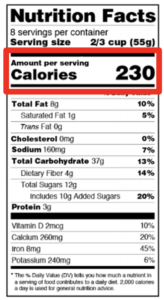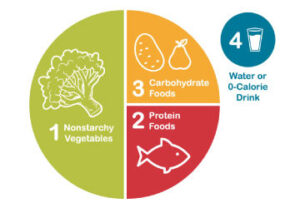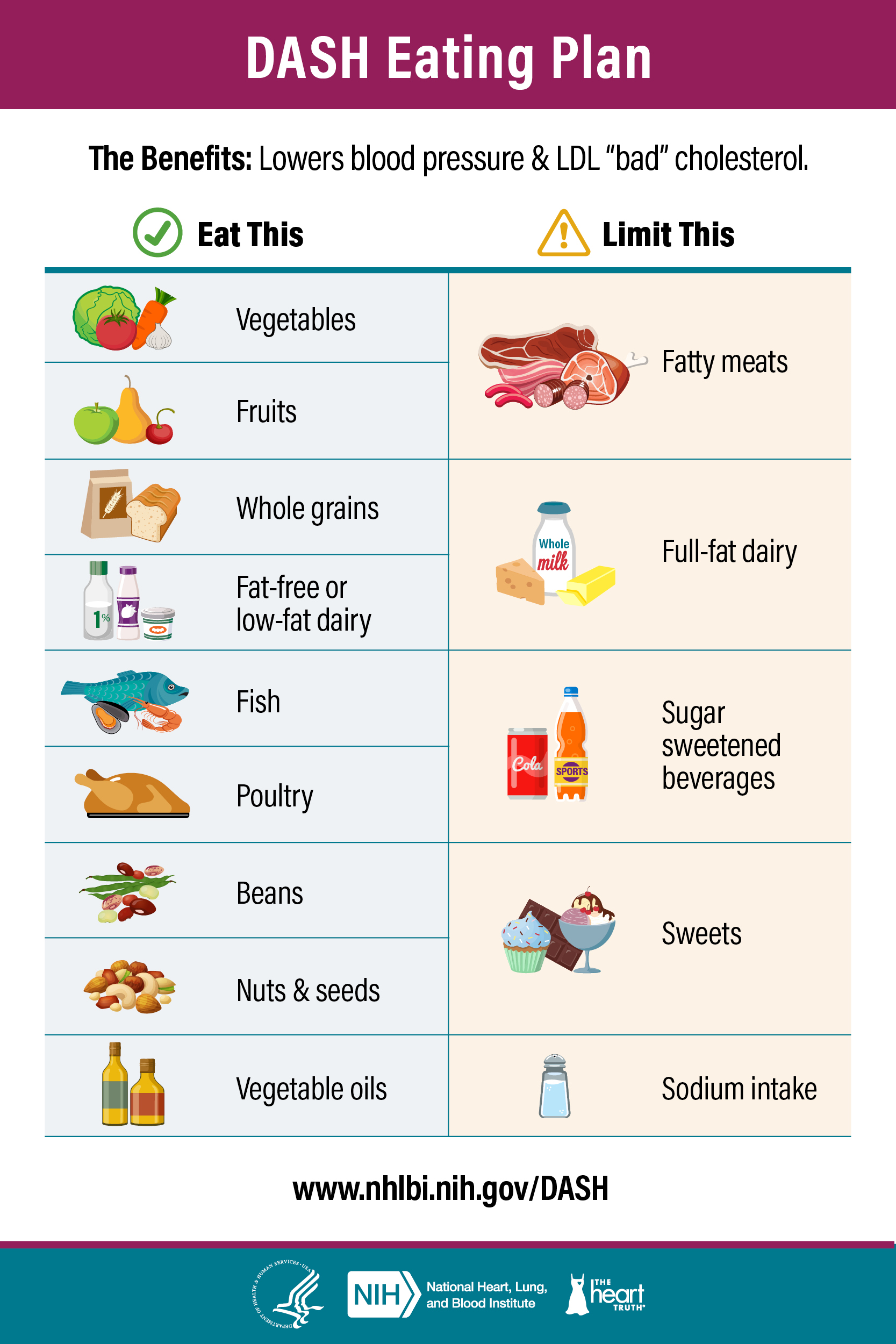Why is Managing My Diet Important?
Maintaining a healthy diet directly impacts our health. According to the 2020-2025 Dietary Guidelines of America, 74% of adults are overweight or obese. This contributes to an increased risk of developing chronic health conditions such as cardiovascular disease, diabetes, and even cancer. It is not easy to simply start exercising to lose weight but being aware of caloric intake and the things we eat are one step in the right direction. For those aged 19-20, the average male should consume around 2,400-3,000 calories per day and the average female should consume about 1,800-2,400 per day. Those aged 31-59 require around 10% less calories than those mentioned above. These numbers are simply estimated average, true caloric intake depends on an individual’s activity level, age, and lifestyle.
What Are Some Tips To Start Eating Better?
- Use: https://www.myplate.gov/myplate-plan to calculate your estimated caloric intake
- Read nutrition label and count calories
- When reading a nutrition label pay attention to the amount of calories per serving.

- When reading a nutrition label pay attention to the amount of calories per serving.
- If you suffer from certain health conditions you may benefit by looking at total carbohydrates, cholesterol, fats and sodium.
- Rethink your drink
- Certain drinks tend to have more calories than we would think
- Choose low-calorie, zero options, or sparkling water.
- Avoid sodas, juices, and other sweet beverages
- Eat out less
- Restaurants and take-out tend to be high in calories due to portion size
- Cooking from home makes it easier to count calories
- Portion control
- Have less proteins and sides (ex: fries, potatoes and other starchy foods) and replace them with more fruits and vegetables
- Measure foods based on serving size and nutrition label
- Increase water intake
- Increasing the amount of water you drink will help you feel fuller during the day.
- Avoid snacking or choose healthier snack options
- Snacking can lead to overeating, especially with junk foods.
- Choose fruits or vegetables to hold you over if you feel the need to snack.
Frequently asked questions:
Who can benefit from diet management?
- Everyone can benefit from managing their diet
- Even those who are considered healthy can benefit by making better food choices
Are there any special diets that exist for certain health conditions?
- Yes, certain health conditions require special diets to prevent the condition from getting worse. Two common examples are listed below. Even though these plans are recommended for certain conditions, anyone can benefit by following these plans.
- Diabetes: PLATE method

- Hypertension: DASH (Dietary Approaches to Stop Hypertension) diet

What Do I Do If I Can’t Lose Weight on My Own?
- Talk to your primary care provider or ask for a referral to a dietician or nutritionist.
Will Diet Alone Make Me Lose Weight?
- Although some people have seen benefits by dieting itself, it is recommended to exercise around 30 minutes per day along with dieting.
- The best way to lose weight is to burn more calories than calories being eaten.
Written by:
Justin Steffan
PharmD Candidate 2023
Philadelphia College of Pharmacy
St. Joesph’s University
Resources:
- CDC. Healthy Eating for a Healthy Weight.Centers for Disease Control and Prevention.Updated 3 June 2022; Accessed 16 November 2022. https://www.cdc.gov/healthyweight/.
- CDC. Nutrition Facts Label. Center for Disease Control and Prevention. Updated 25 May 2021. Accessed 16 November 2022.
https://www.cdc.gov/nutrition/strategies-guidelines/nutrition-facts-label.html
- Cornerstones4Care. Planning healthy meals. NovoNordisk. Published August 2021. Accessed 16 November 2022 https://www.novomedlink.com/content/dam/novonordisk/novomedlink/new/diabetes/patient/disease/library/documents/planning-healthy-meals.pdf
- DGA. Dietary Guidelines for Americans 2020-2025. Accessed 16 November 2022. https://www.dietaryguidelines.gov/sites/default/files/2020-12/Dietary_Guidelines_for_Americans_2020-2025.pdf#page=31.
- NHLBI: DASH Eating Plan.National Heart Lung and Blood Institute. Updated 29 December 2021. Accessed 16 November 2022. https://www.nhlbi.nih.gov/education/dash-eating-plan
- U.S Department of Agriculture. MyPlate Plan. MyPlate. Accessed 16 November 2022 https://www.myplate.gov/myplate-plan
